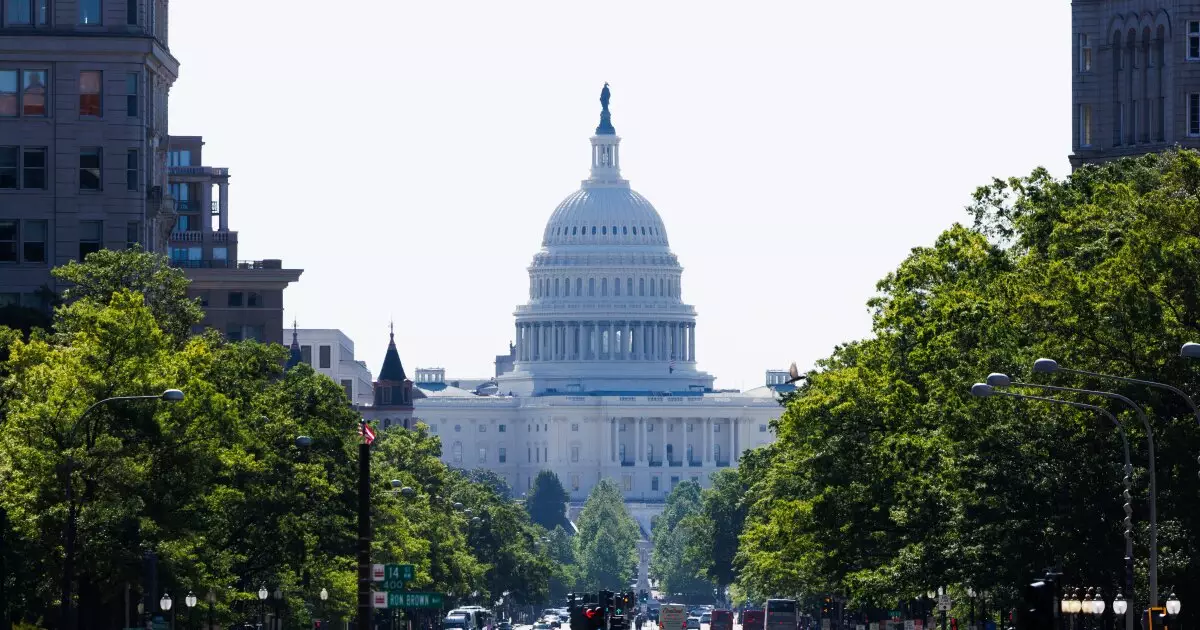5 Reasons Why the Latest Tax Bill is a Fiscal Nightmare for Americans

At first glance, the newly unveiled draft by the House Ways and Means Committee appears to be an admirable attempt at tax reform, lauded even as a continuation of the 2017 Tax Cuts and Jobs Act. However, a critical examination reveals a disconcerting truth: the proposed legislation comes at the cost of an astronomical $5 trillion price tag. This staggering amount not only exceeds the permissible limits established by the budget resolution, which caps spending at $4.5 trillion, it also poses a significant strain on future generations. Are we willing to mortgage the financial future of our children in exchange for fleeting gains today?
The Committee for a Responsible Federal Budget has pointed out that this draft would amplify primary deficits significantly through 2034. When fiscal prudence should be our priority, politicians continue to obscure the implications of their proposals, recklessly prioritizing immediate political victories over sustainable economic health. The rationale for this tax overhaul centers around a supposedly “pro-family, pro-worker” ethos, yet this rhetoric rings hollow against the reality of ballooning deficits that all Americans—especially those in the middle class—will be compelled to shoulder.
The SALT Caucus Conundrum
One particularly contentious aspect of the bill is the conspicuous absence of any adjustments to the state and local tax (SALT) deduction cap. This oversight further alienates representatives from high-tax states, effectively denying them a meaningful compromise. The SALT Caucus, comprised of lawmakers from regions heavily burdened by tax regulations, finds their influence minimized in what should ostensibly be a bipartisan discussion on tax fairness. This suggests a troubling trend where regional concerns are sidelined for the sake of a concerted political strategy.
Without addressing the grievances of these representatives, the bill risks exacerbating divides within the party. Moreover, the looming specter of a potential impasse poses an even graver threat: a fractured party opening the door to a disenchanted electorate that may very well seek alternatives in the upcoming elections. Making concessions on the SALT deduction could foster a spirit of cooperation, rather than perpetuating a climate of divisiveness, which only stalls genuine reform.
Inflation Concerns and Fiscal Responsibility
As inflation grips the nation, it’s essential that Congress approach any new financial regulations with circumspection. Pouring $5 trillion into the economy—especially when inflation rates are already spiraling—could serve to destabilize financial markets and inflate prices further. By ignoring established fiscal boundaries and disregarding the broader economic context, lawmakers risk exacerbating the wealth gap, something they purport to oppose.
It is already evident that such a bill could ignite further price hikes, which would disproportionately affect low- and middle-income families. Tax reform, ideally, should serve as both a catalyst for job creation and a vehicle for equitable tax policy, but these lofty aspirations become untethered when excessive spending compounds an already precarious financial environment.
Budgetary Shortfalls and Future Debts
The absence of revenue offsets within the current draft is perhaps one of the most alarming features. Lawmakers must realize that simply passing tax cuts without a corresponding mechanism for revenue generation invites dire consequences. The Joint Committee on Taxation’s assessment that the plan could add significantly to the national debt is a clarion call to reevaluate our spending priorities. History suggests that tax cuts without corresponding spending constraints only harden the expectation for future tax increases—a politically undesirable outcome.
It’s time for Republican leaders, in particular, to pause and truly consider the ramifications of continued debt increase. The groundwork for sustainable fiscal policies requires conscientious effort to not only reconcile current needs but also to safeguard future fiscal health through responsible budgeting.
The Political Theatre of Temporary Gains
As the clock ticks down to committee meetings and formal votes, it is vital that voters remain vigilant, scrutinizing every element of this complex bill. Although it is presented as a boon for families, upon closer inspection, it is little more than a political theater designed to sway public sentiment, all while deepening the fiscal quagmire we find ourselves in. Partisanship, rather than true public interest, seems to guide the content of the bill, hinting at the trivialization of genuine dialogue surrounding taxation and budget management.
In an era where every dollar counts, we cannot settle for legislation that merely panders to partisan ambitions. It’s time our representatives elevate their discourse, prioritize fiscal responsibility, and engage in authentic policymaking that uplifts rather than cripples the American economic landscape.





